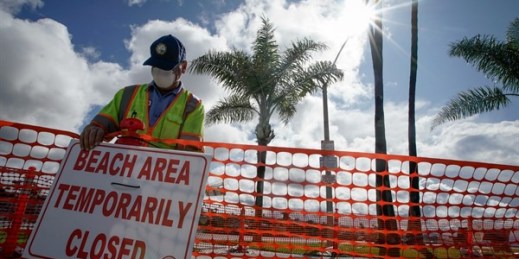
Competition over scarce natural resources is often a key driver of the tensions that fuel armed conflict in different corners of the world. Yet in the heat of battle, environmental considerations are often relegated to afterthoughts, as smoke from burning buildings clouds the skies and toxic byproducts of munitions poison the soil and groundwater. As former United Nations Secretary-General Ban Ki-moon said in 2014, “The environment has long been a silent casualty of war and armed conflict.” Conflict-related environmental damage directly and indirectly affects the wellbeing of nearby civilians by threatening their health, ecosystems, livelihoods and economies. Accordingly, humanitarian organizations […]



